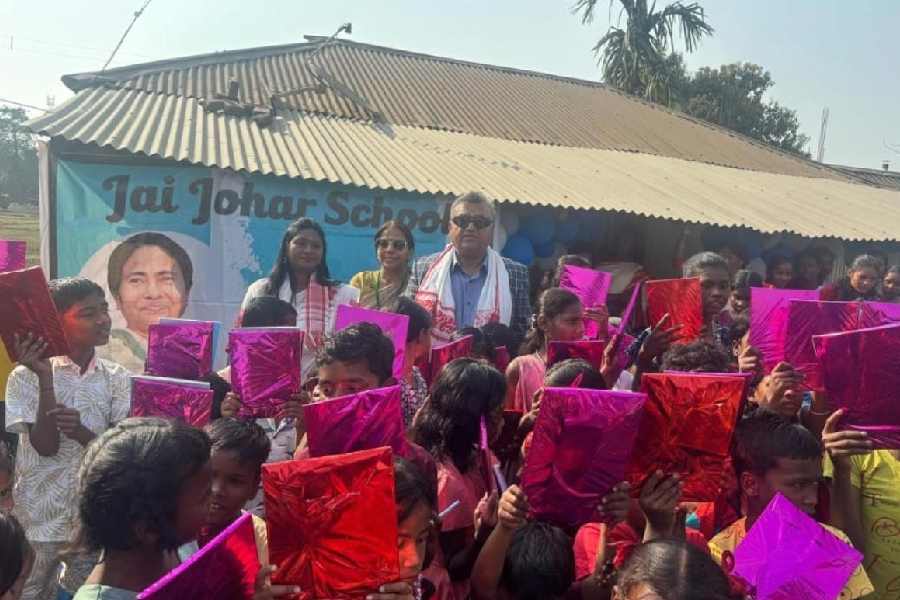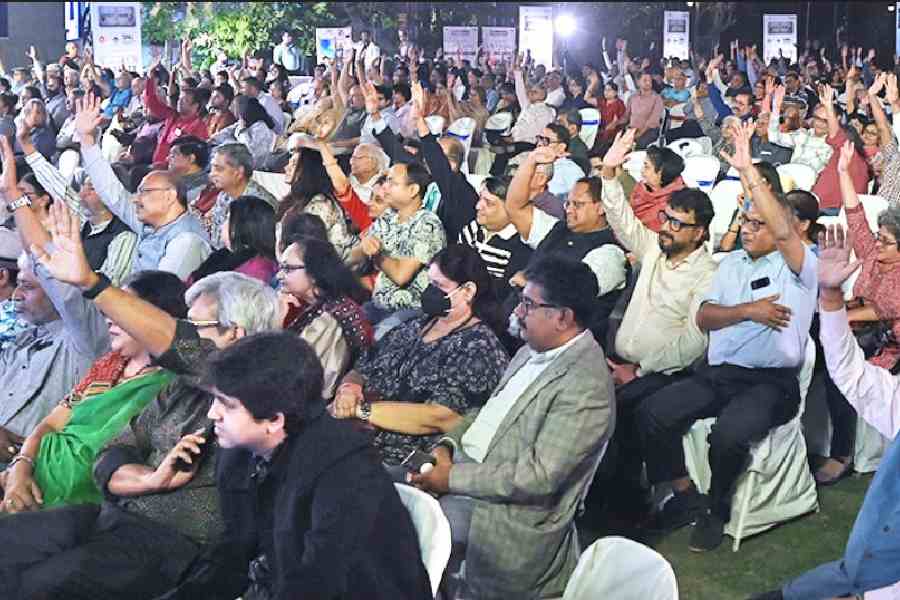A north Bengal-based trade body has taken up the responsibility to develop around 50 informal schools across the region to create additional educational opportunities for children dwelling in remote areas, including tribal and Rajbanshi belts.
“Our chief minister, Mamata Banerjee, came up with the idea to develop such informal schools and shared it with us. On our part, we have decided to develop 50 such schools in different locations, ranging from tea estates to remote villages, to ensure that children living in such places have access to quality education,” said Sanjay Tibrewal, the chairman of the North Bengal Chamber of Commerce (NBCC).
According to him, they had already set up five such schools which run in local community halls and similar establishments where children are taught in tribal languages.
While two such schools have opened in the Naxalbari and Kharibari blocks of the Siliguri subdivision, three others have come up in Malda and Alipurduar districts.
“According to the suggestions of the chief minister, we have decided to name the schools which will come up in tribal belts as Jai Johar Schools. On the other hand, those coming in the Rajbanshi-dominated areas will be known as Thakur Panchanan Barma Schools,” he added.
Jai Johar is a salutation used by tribal people. Thakur Panchanan Barma, on the other hand, was a social reformer and the most respected statesman of the Rajbanshi community.
Tibrewal, while elaborating on the initiative, said the idea is was to discourage children from dropping out of schooling.
“In the tea belt and also in some villages where most of the people are from the Rajbanshi community, it has been found that a considerable section of children either do not enroll themselves in nearby primary schools or eventually stop their studies due to various reasons,” he said.
“Though these informal schools, where classes would be conducted for a couple of hours, we want to bring these children within the ambit of education,” added the
NBCC chairman.
Sources said representatives of the trade body are moving into remote villages and tea estates to identify children as well as locations for the schools. With the help of the local block administration and elected representatives of panchayats, they are identifying community halls or similar places to run the schools.
“We are also taking their help to get the local children admitted to the schools,” said a member of the trade body.
“Even those who are studying in local primary schools are being encouraged to join our school where they can have extra classes to have a better understanding of the subjects. As of now, we have 40 to 50 students in each of the schools that we have opened so far,” he added.
In Rajbanshi-dominated areas, the trade body has found out that local youths can teach the language. In tribal belts, teachers are being selected after ascertaining the local language that the maximum number of people speak in the area concerned.
“The idea is to break the language barrier. Thus, we are using the local language as the medium of instruction. We are paying an honorarium to the teachers and providing other educational aides like blackboards, books and stationery to the children,” the
member added.
Along with imparting education through the informal schools, the NBCC has also drawn up plans to take such underprivileged children on day trips so that they learn about nature and the environment and the larger infrastructure of the country such as a railway station or an airport.
“Children of such remote areas hardly get a chance to move out of their villages. We want to broaden their scope of education through such visits,” Tibrewal added.
On March 1, they will open the first Rajbanshi-medium school. “It will come up in Cooch Behar,” he said.










